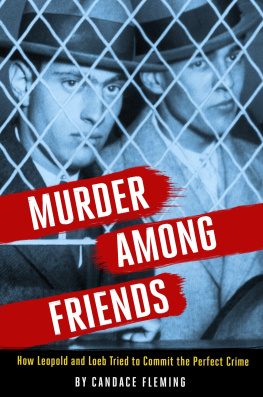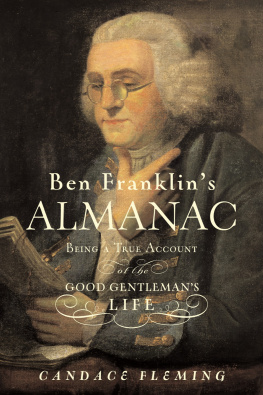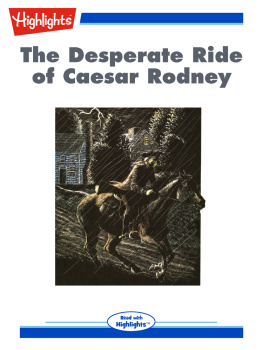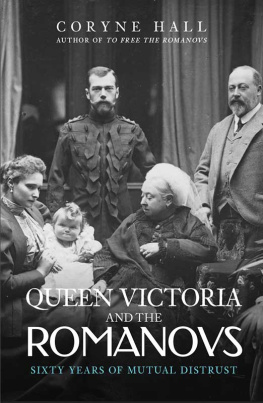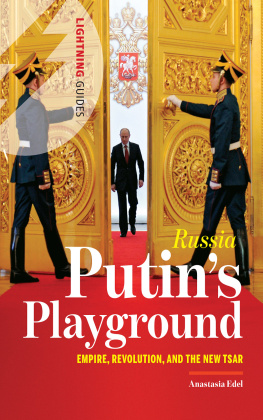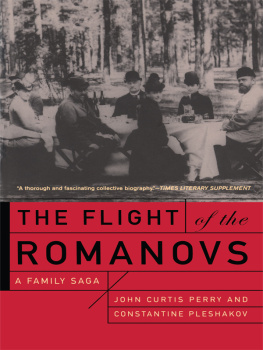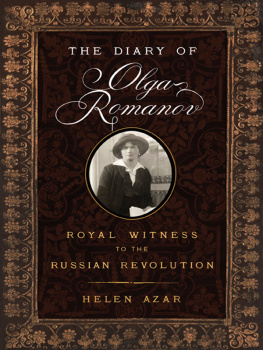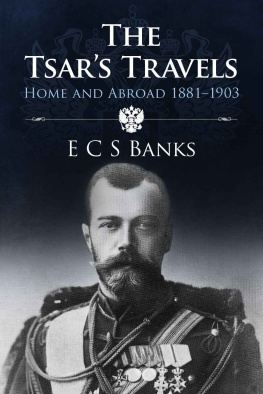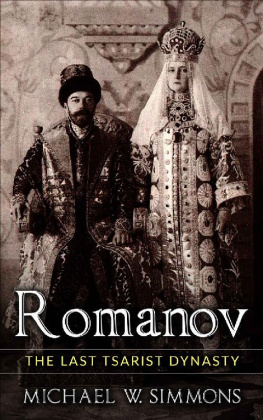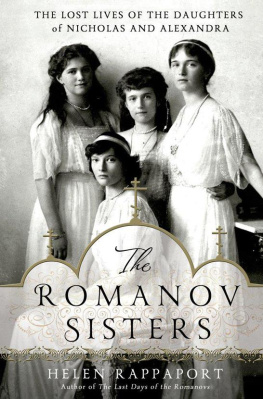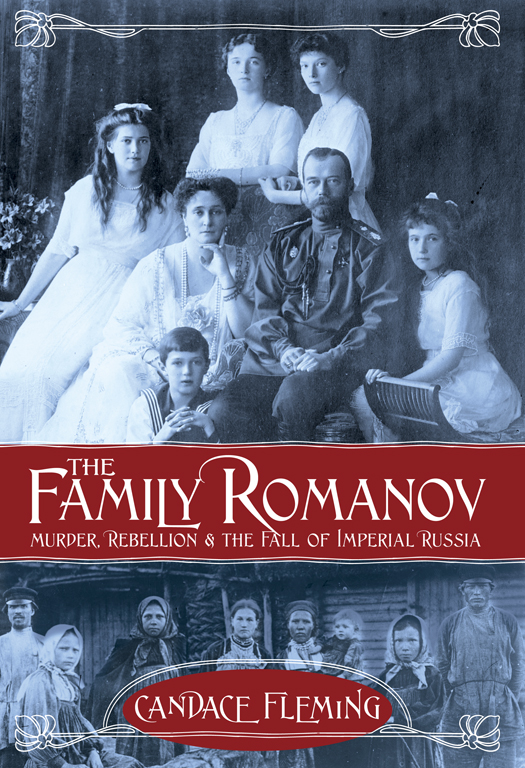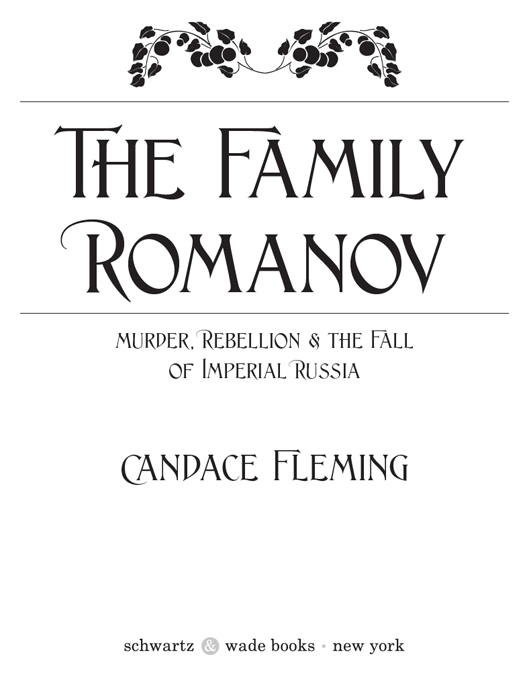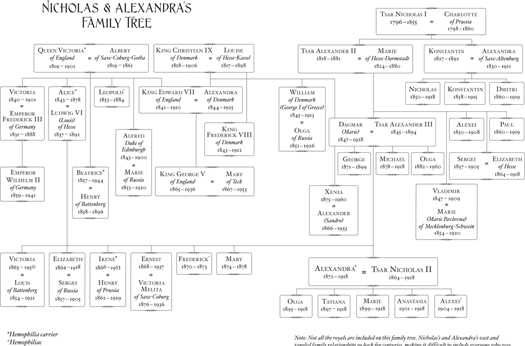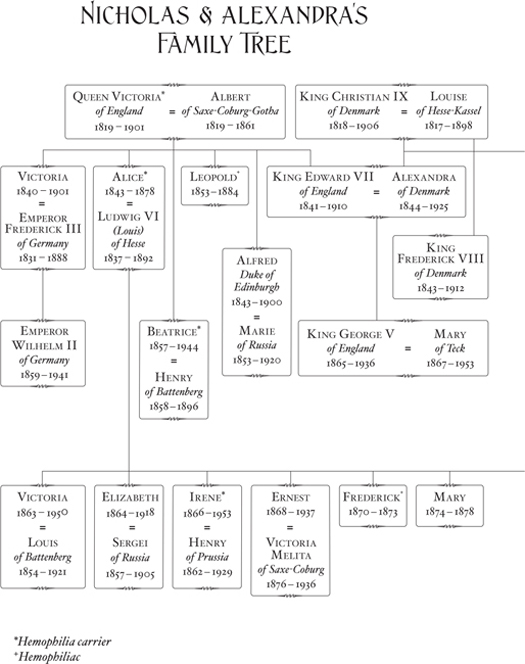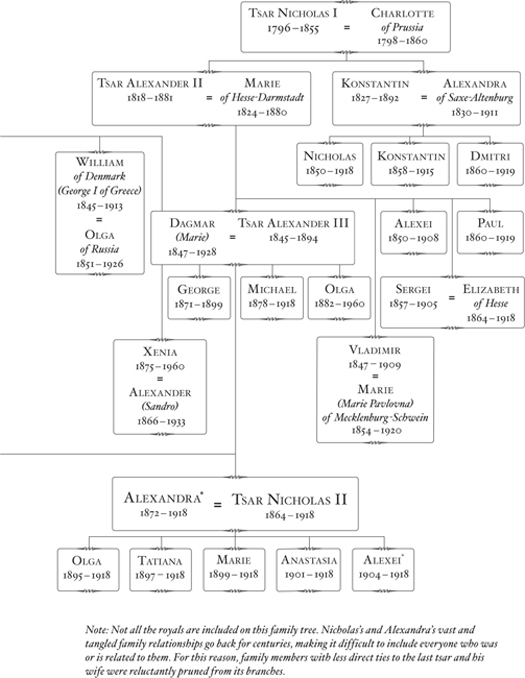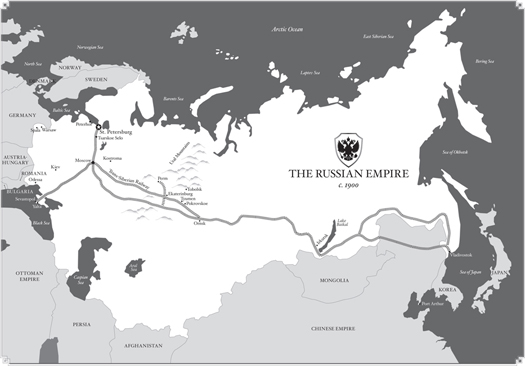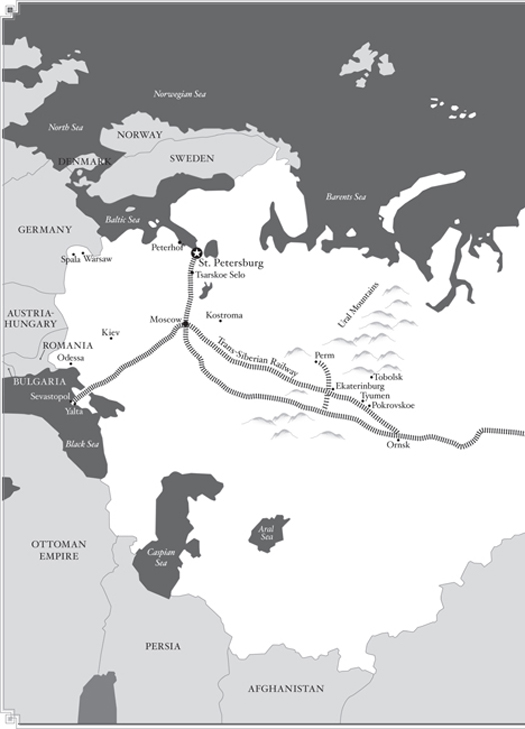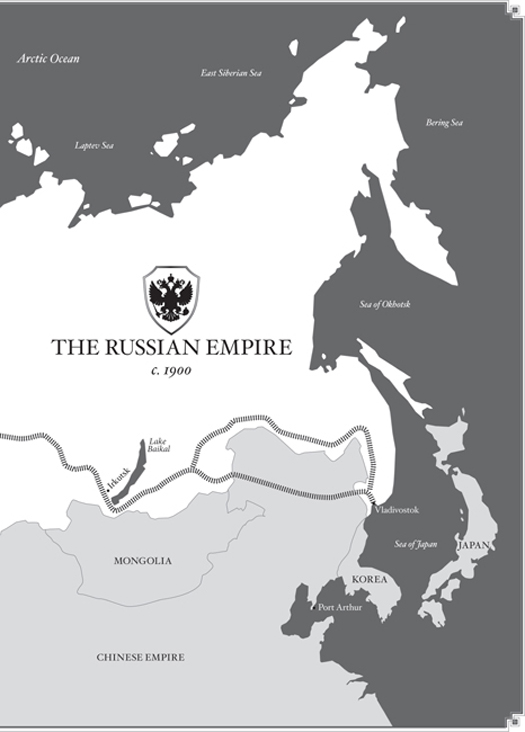Text copyright 2014 by Candace Fleming
Jacket photographs courtesy of the Library of Congress
Map of Russia and family tree by Holly Pribble
All rights reserved. Published in the United States by Schwartz & Wade Books, an imprint of Random House Childrens Books, a division of Random House LLC, a Penguin Random House Company, New York.
Schwartz & Wade Books and the colophon are trademarks of Random House LLC.
Visit us on the Web! randomhouse.com/teens
Educators and librarians, for a variety of teaching tools,
visit us at RHTeachersLibrarians.com
Library of Congress Cataloging-in-Publication Data
Fleming, Candace.
The family Romanov : murder, rebellion, and the fall of imperial Russia / Candace Fleming.
pages; cm
Includes bibliographical references.
ISBN 978-0-375-86782-8 (hc) ISBN 978-0-375-96782-5 (glb)
ISBN 978-0-375-89864-8 (ebook)
1. RussiaHistoryNicholas II, 18941917. 2. Nicholas II, Emperor of Russia, 18681918Family. 3. Romanov, House of. 4. Soviet UnionHistoryRevolution,
19171921. I. Title.
DK258.F5725 2014
947.0830922dc23
[B]
2013037904
Random House Childrens Books supports the First Amendment and celebrates the right to read.
v3.1
A LSO BY C ANDACE F LEMING
Young Adult
The Lincolns: A Scrapbook Look at Abraham and Mary
On the Day I Died: Stories from the Grave
Middle Grade
Amelia Lost: The Life and Disappearance of Amelia Earhart
The Great and Only Barnum: The Tremendous, Stupendous Life of Showman P. T. Barnum
The Fabled Fourth Graders of Aesop Elementary School
The Fabled Fifth Graders of Aesop Elementary School
Younger Readers
Oh, No!
Clever Jack Takes the Cake
Imogenes Last Stand
CONTENTS
B EFORE Y OU B EGIN
The ruler of Russia is called the tsar or emperor (the titles are interchangeable), his wife is either the tsaritsa or empress, and his male heir is called the tsarevich. His other children are given the title of grand duke if male or grand duchess if female. These last titles are passed down just one more generation, so a tsars grandchildren are also grand dukes and grand duchesses. But a tsars great-grandchildren hold only the rank of prince or princess. Thus grand dukes and grand duchesses outrank princes and princesses.
Russians have three names: a first name; a fathers name with -ovich or -evich (meaning son of) added if male, or -evna or -ovna (meaning daughter of) if female; and a last, or family, name. Therefore, Nicholas IIs daughters full name was Anastasia Nikolaevna Romanova; his sons full name was Alexei Nikolaevich Romanov.
Russian dates can be bewildering. Thats because during Nicholass reign, Russia used the old-style Julian calendar to record dates, when most of the world was using the new-style Gregorian calendar. This meant Russian dates lagged twelve days behind during the nineteenth century, and thirteen days behind during the twentieth. Thus Anastasia was born June 5, 1901, according to the Julian calendar, but June 18, 1901, by the Gregorian calendar. Since readers of this book are familiar with the Gregorian calendar, all dates in this book are given in the new style.
To view a full-size version of this image, click HERE.
To view a full-size version of this image, click HERE.
R USSIA
1903
T HE C HOSEN
On the night of February 12, 1903, a long line of carriages made its way through the Imperial Gates of St. Petersburgs Winter Palace. The great mansion, which stretched for three miles along the now-frozen Neva River, blazed with light, its massive crystal and gold chandeliers reflected a hundred times in the mirrored walls of its cathedral-size reception rooms. The light cast a welcoming glow that contrasted sharply with the snow and ice outside. Bundled in sable, ermine, or mink wraps, the passengers alighted. Bracing themselves against the icy wind howling off the Gulf of Finland, they hurried through the arched doorway.
Inside, the strains of the court orchestra greeted them. Masses of fresh roses, lilacs, and mimosas imported just for the night from the South of France perfumed the air. Handing their furs to the waiting footmen, guests paused in front of the pier glass to straighten silk skirts and pat pomaded hair into place before ascending the wide marble staircase to the second floor.
A series of halls, each more grand than the last, met the guests. Gilded ceilings and doorways. Columns of malachite and jasper. White marble statues. Through these rooms the guests wandered, plucking flutes of champagne from silver trays, clapping each other on the back, laughing, joking, gossiping. They felt completely at ease in their opulent surroundings. Thats because they were members of the nobilitythe 870 families known in Russia as the blaya kostliterally meaning white bone, or what we would call blue blood.
Holding titles like prince and princess, duke, baron, count and countess, the blaya kost represented only 1.5 percent of the population, but owned 90 percent of all Russias wealth. Educated and sophisticated, many of them could trace their family roots all the way back to the ancient princes who had ruled the country centuries before. And most lived lives of incredible luxury that were, recalled one princess, a natural part of existence. They built summer and winter palaces filled with fine antiques and priceless objets dart, ordered designer gowns from Paris, vacationed in Italy or on the French Riviera, and spoke English or French (but seldom Russian because it showed a lack of breeding). Privileged from birth, the blaya kost socialized only with each other. They belonged to the same clubs, attended the same parties, frequented the same shops, restaurants, and salons. Above all, they possessed an unshakable belief in their own superiority. As one member of the upper crust explained, nobles had a certain quality of being among the chosen, of being privileged, of not being the same as all other people.
Tonight, they felt especially chosen. Weeks earlier, the court runner had hand-delivered a stiff vellum card embossed with the imperial insigniathe gold double-headed eagleto their palaces. It was an invitation from Tsar Nicholas IIan invitation to a ball!


